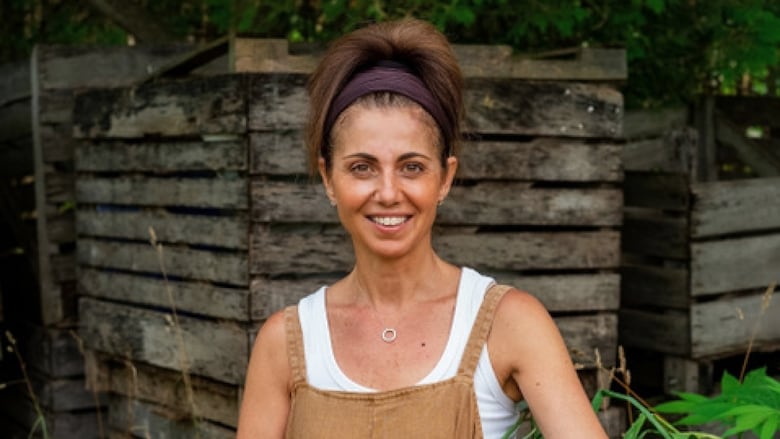Q&A: Irene Matys' bestselling cookbook shares her passion for her homeland
Matys talks about moving to Sarnia as a refugee, and sharing her cultural heritage here in Canada

When Irene Matys tells people that she is from Cyprus, people typically ask her where she lives in Greece. It's a common misconception that she is hoping to tackle in her new book My Cypriot Table.
The Amazon bestseller shares the tastes of her homeland, and tells the story of her family's journey to Canada as refugees nearly five decades ago. Matys spoke with Afternoon Drive host Matt Allen about the book and blending cultures.
The following interview has been edited for length and clarity

Matt Allen: Where did the inspiration for this book come from?
Irene Matys: I wanted to leave a legacy for my daughters as well as for generations to come. Cyprus and Cypriot cuisine are not well-known. When I used to tell people I was from Cyprus, they'd often ask, 'What part of Greece are you from?' They didn't realize Cyprus is not part of Greece. Although we're Greek, Cyprus is an independent island.
It's kind of where East meets West—half Mediterranean, half Middle Eastern—closer to Egypt and Turkey than Greece.
MA: How often do people mistakenly think Cyprus is part of Greece?
IM: Quite often, actually. We speak Greek, and some of our cuisine is influenced by Greece, so it's often mistaken as part of the Greek islands.
MA: What differences between the two countries' cultures, foods, and cuisine did you want to highlight in this book?
IM: I talk about halloumi cheese, which is our national cheese, whereas in Greece, it's feta. We also use feta in Cyprus because of the Greek influence, but halloumi is uniquely ours. Another example is tzatziki. The Greek version is made with dill and cucumber, while our version—called talatouri—uses fresh mint instead of dill.
Our language also reflects a mix of Greek and Turkish influences, though we're gradually adapting to the more formal Greek language. There are also differences in music, dances, wines, and spirits. The book touches on all these cultural aspects.
MA: Culture clearly means a lot to you. I understand you came to Canada as a refugee in the 1970s?
IM: Yes. The war happened in 1974. My dad served in the war, and my mom, brother, grandparents, and I were moved to refugee camps in Famagusta on the north side of Cyprus during the conflict.
When the war ended the north side, where our home was, became occupied territory. We never got our home back, and we were relocated to refugee camps in the south of Cyprus. Eventually, in 1976, family members in Canada sponsored us, and we came here as refugees.
We've made a life here, but we still go back to Cyprus often. My parents have a home in the south, and we visit every year. For this book, I traveled to Cyprus for two consecutive years to capture its beauty. The book isn't just recipes—it's also a travel book with photos of the beaches, wineries, mountains, and some of my favourite restaurants.
MA: I understand your family got into the restaurant business when you arrived in Canada. How did that shape your perspective on food?
IM: It shaped it a lot. My parents believed in farm-to-table long before it became a trend. My mom always had a garden. As refugees, my parents worked long hours and as the oldest child, I helped out by preparing meals and taking care of things after school.
I grew to love gardening and cooking. When my dad opened the restaurant, I was excited to help. I worked there after school and on weekends. My dad and mom both loved cooking and taught me so much.
When I finished high school, I wanted to go to culinary school and continue the family business, but my parents insisted I go to university instead. So, I got a business degree, worked in finance, got married, and had kids. But after raising my daughters, I returned to my true passion — food.
MA: What did your dad think about your return to food?
IM: At first, he thought I was crazy. When I told him I was leaving my job to go to culinary school, he was skeptical. But then I appeared on The Marilyn Denis Show for my first TV segment. I made him watch it, and I saw his eyes well up. Afterward, he said, 'This is what you're meant to do.'
Now, with this cookbook, he's so proud. It tells our story — our journey as refugees, our Cypriot roots, and our Canadian journey. It celebrates both Cyprus and Canada.
For example, I included a baklava recipe to honour my Cypriot roots, but I also created baklava butter tarts, blending Cypriot and Canadian traditions.
